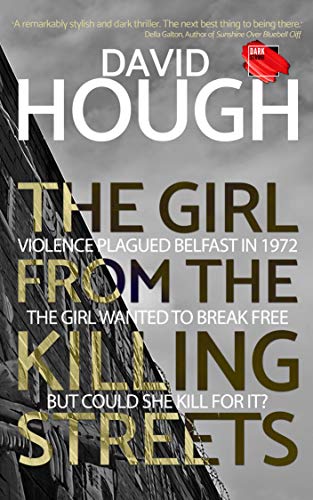13th December 2020 (13:18)

I was drawn to this book due in part to the setting (Northern Ireland during ‘the Troubles’), with which I’m quite familiar and the ambition implied by using as the main backdrop to the novel, 21st July 1972 – ‘Bloody Friday’. For those unfamiliar, this was the name given to a series of bombings in Belfast perpetrated by the Provisional Irish Republican Army. At least twenty bombs exploded in the space of eighty minutes, culminating in 9 deaths and 130 casualties (the even more notorious ‘Bloody Sunday’ occurred in January of the same year). Yet, within this real-life sectarian horror, David Hough has founded an intriguing story replete with love, guilt, violent anger, regret and potential redemption.
Sorcha Mulveny is imprisoned in Armagh gaol for murders committed during that turbulent period, but the narrator of the book is an anonymous journalist seeking to piece together the sequence of events leading up to her original trial. The intervening eight years might offer the benefit of hindsight, but as he discovers the legacy of physical and mental scarring is long-lived and remains all too real. Everyone it seems is carrying baggage.
The journalistic endeavour, which will inform a non-fiction book, takes place over months and is a useful device with which to synthesize the multiple perspectives reflecting on that fateful day. The terrorists, the terrorized and the police, seeking to marshal the factions and uphold a common law, are represented through serial interviews with Sorcha, her protestant boyfriend (Martin) and a former detective sergeant (Will Evans). Their respective recollections are painstakingly pieced together, enabling a satisfying overview that the reader can stand back and admire. In a sense, the author methodically assembles the pieces of a complex jigsaw and fits them together for a fascinating slow reveal. Each of the key characters explain, through their disparate experiences, how they were personally affected, but inevitably it is where their networks overlap and spheres of influence collide that the drama arises.
This novel offers a sobering, fictional commentary on the catastrophe of communities at war and the many victims of the attendant crossfire. On a more philosophical note the author also calls into question the price of ‘belonging’ and the irrational choices sometimes made in the name of ‘loyalty’. A cleverly constructed moral maze, which challenges the reader, but also suggests the possibility of a different, better outcome, this book is well worth reading.
